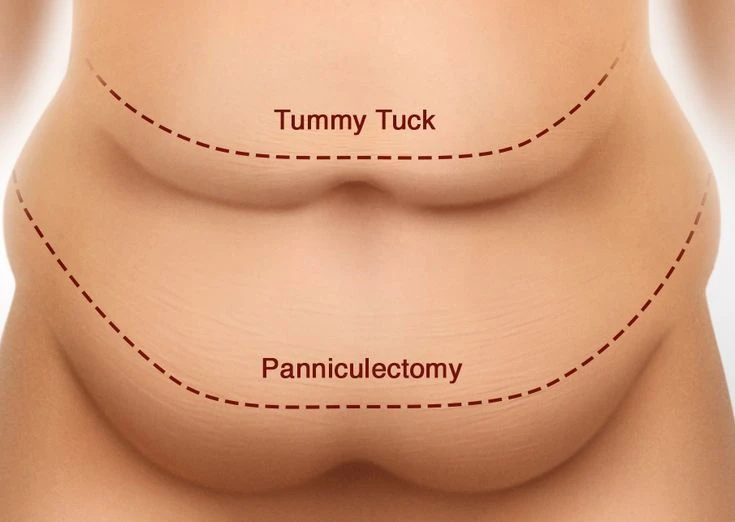The landscape of weight loss has drastically evolved in recent years. With the rise of virtual care and medical innovations, more people are exploring comprehensive, medically supervised routes to reach their goals. Whether it's shedding pounds through structured programs or addressing post-weight loss body changes, a wide spectrum of tools is now available to those on a transformation journey.
For many, it all starts with an online weight loss clinic—a modern, accessible solution that blends convenience with medical expertise.
Why Online Clinics Are Changing the Game
Gone are the days when weight loss support required in-person appointments, long waiting times, and generic advice. Today’s digital platforms connect patients with board-certified physicians, dietitians, and health coaches—all from the comfort of home. These virtual clinics offer evidence-based strategies for weight loss, often integrating prescription medications like GLP-1 receptor agonists (such as semaglutide or tirzepatide), customized meal plans, and ongoing accountability.
One of the key advantages of choosing an online weight loss clinic is the tailored, doctor-led approach. Unlike traditional diet programs, these clinics evaluate your medical history, current lab work, and long-term goals before recommending a plan. Many also provide insurance-friendly billing options or pharmacy support, making access to medications and support more affordable.
Additionally, for individuals living in rural areas or with busy schedules, virtual care removes the logistical barriers to getting consistent medical support. This accessibility can be a game-changer for long-term success, especially when combined with digital tracking tools, food logs, and regular check-ins.
Beyond the Scale: Addressing Physical Changes After Major Weight Loss
Weight loss, especially when significant, isn’t just about numbers on a scale. It often brings profound physical and emotional changes. While most people focus on losing the weight, few are prepared for the reality of excess skin that may remain, especially in the abdominal region.
That’s where reconstructive procedures like panniculectomy come into the picture. This surgical procedure removes the apron of loose skin and fat that can hang down after major weight loss. It’s not just a cosmetic fix—it can also alleviate physical discomfort, rashes, and hygiene challenges. But the burning question for many is whether such a procedure is financially feasible.
So, is panniculectomy covered by insurance?
When Insurance May Cover Excess Skin Removal
Coverage for post-weight loss surgery depends on whether the procedure is considered medically necessary. While cosmetic surgery is typically excluded by health plans, panniculectomy is sometimes viewed differently—especially when it addresses ongoing medical problems such as chronic infections, skin irritation, or mobility issues.
To have a panniculectomy covered by insurance, documentation is critical. Most insurers require a detailed medical history showing that the excess skin is causing functional impairments. Physicians must typically provide evidence such as photographs, records of persistent skin issues, and proof that non-surgical treatments were unsuccessful.
Moreover, patients often need to maintain a stable weight for a specific period (usually six months or more) after reaching their weight loss goal before being considered eligible. Some plans may also request evidence that the patient’s weight loss was achieved through medical intervention or bariatric surgery under supervised care.
If you’re unsure whether you qualify, the best place to start is with your primary care physician or a plastic surgeon familiar with insurance requirements. They can help compile the necessary documentation and submit a pre-authorization request.
Building a Long-Term Weight Management Plan
Whether you're beginning your journey with a digital solution or planning for post-weight loss body contouring, having a clear, sustainable plan is key. Working with a multidisciplinary team—especially one accessible through an online platform—can make a huge difference.
Many people find that starting with a reputable online provider builds a strong foundation, particularly when combined with tools for monitoring food intake, tracking progress, and receiving continuous guidance. Some virtual clinics even offer mental health support to address the emotional components of weight loss and body image.
Likewise, setting realistic expectations about what your body will look and feel like post-weight loss can prevent disappointment and help you plan accordingly for surgical options if needed.
Final Thoughts
The journey to better health doesn't stop at the point where the scale shows a new number. It involves evolving through each stage—whether it's beginning with an online weight loss clinic or later exploring whether a panniculectomy covered by insurance is a viable option to improve quality of life.
Weight loss is no longer a one-size-fits-all process. With the blend of modern telemedicine and insurance-backed surgical solutions, more people than ever have the tools to reshape not only their bodies but their lives. The key is staying informed, advocating for your needs, and creating a plan that honors your personal health journey—every step of the way.


